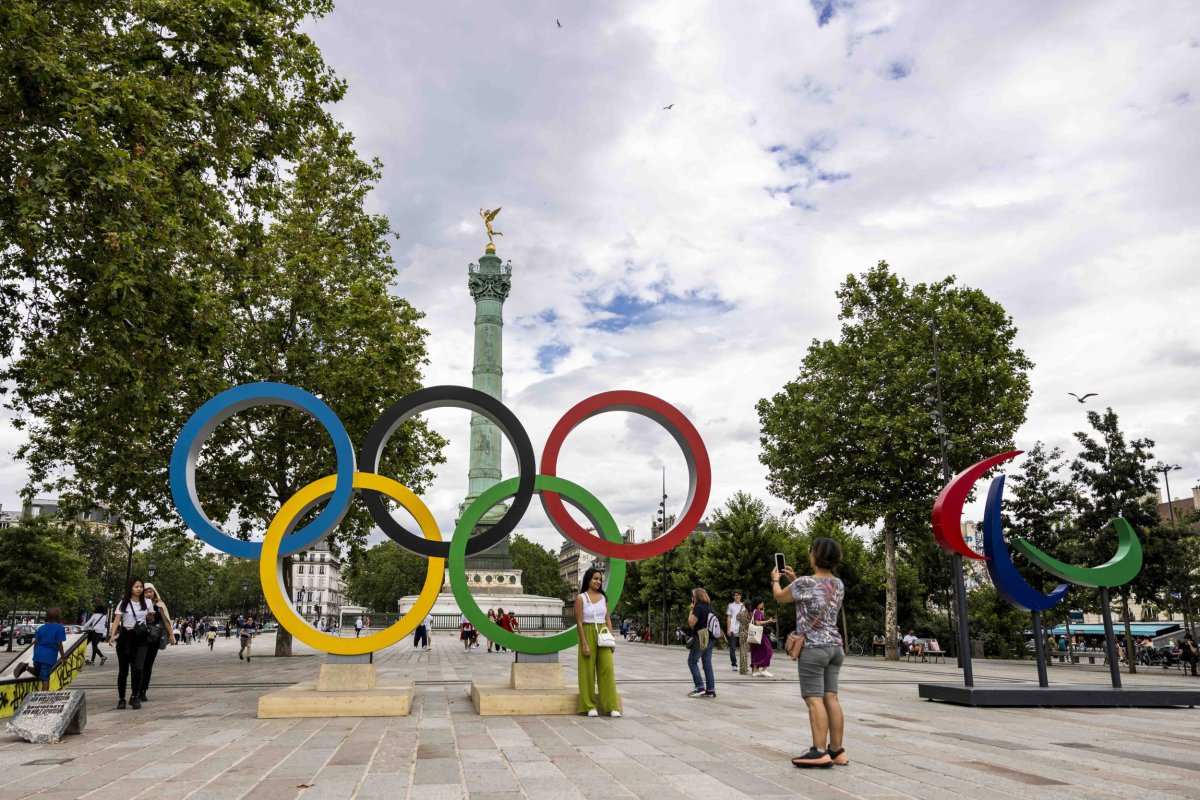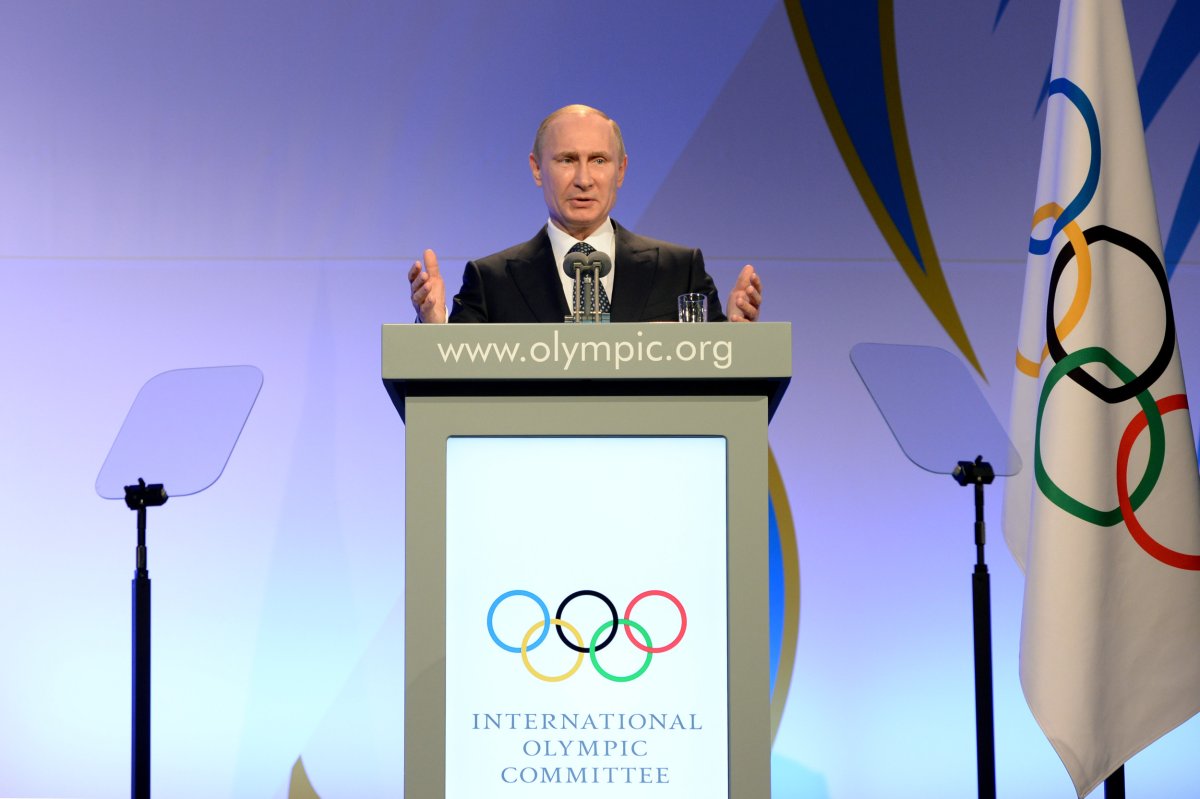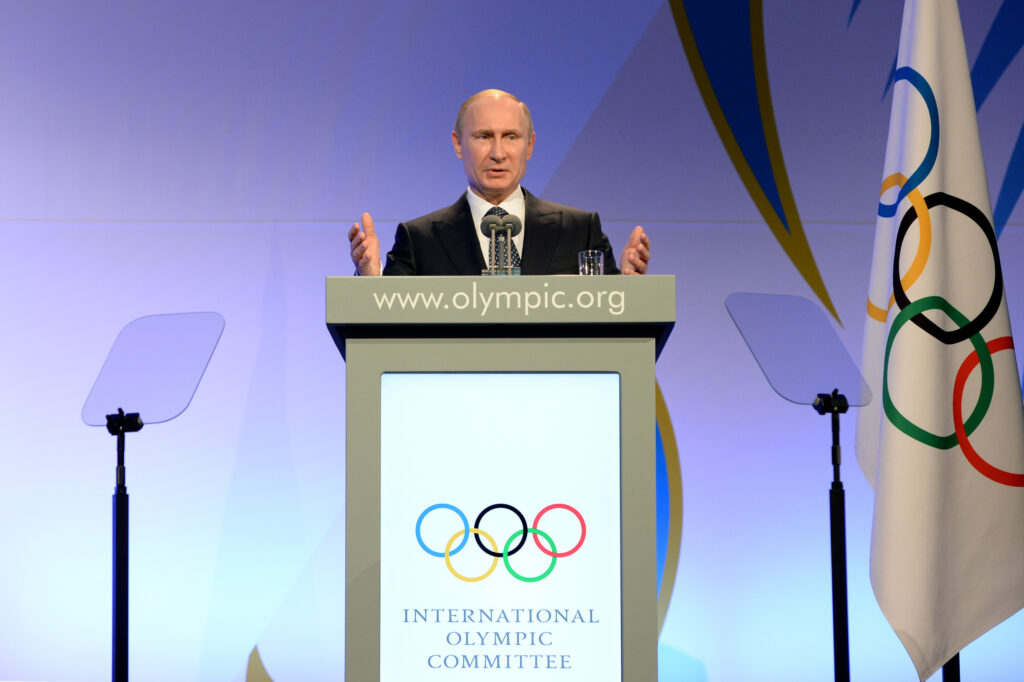Cybersecurity experts say Russian hackers are preparing to disrupt the Paris Olympics, with targets ranging from spectators to government officials.
New research from Mandiant, a cybersecurity company and subsidiary of Google, argues that event organizers and attendees need to be on high alert, given the significant risks posed by financially and geopolitically motivated cybercriminals.
In a report titled “Phishing for Money,” Mandiant determined that the Paris Olympics are “at heightened risk of cyber threat activity.”
Authors Michelle Cantos and Jamie Collier assessed with “high confidence” that Russian state-sponsored hackers pose the greatest risk to the Olympics, with hackers from China, Iran and North Korea also posing a medium threat.

Maya Hitidji/Getty Images
Collier, Mandiant's chief threat intelligence adviser for Europe, spoke to Newsweek about the Olympics' unique vulnerabilities.
“The Olympics are a high-profile sporting event with a global audience, making them an ideal platform for cyberattacks aimed at psychological and reputational damage,” Collier said, “as the impact of any disruption would be significantly amplified.”
The paper outlines a range of cyber risks facing the Olympics, including cyber espionage, “destructive and disruptive” attacks and financially motivated hacking.
Because it's an international event attended by government officials and heads of state, Collier believes Russian hackers will try to use the event to “gather intelligence” on senior foreign decision makers.
But attendees should also be vigilant: such a large-scale event presents a perfect opportunity for cybercriminals of all kinds to target tourists with ticket fraud and try to steal their personal information.
For Collier, the worst-case scenario would be a massive, “destructive” attack, including the deployment of “wiper malware” to wipe data on targeted networks, that would disrupt the Paris Olympics.

Andrei Isakovic/Associated Press
Collier argued that a number of factors conspire to make this year's Olympics particularly vulnerable.
The International Olympic Committee deemed Russia's invasion of Ukraine a “flagrant violation” of the Olympic Charter and immediately responded by banning Russia from competition in February 2022. Russian and Belarusian athletes will be able to continue competing under neutral flags.
Collier said this gives Putin a “clear incentive” to target the Olympics, and combined with his sophisticated cyber espionage capabilities and track record of targeting the Olympics in the past, makes him the greatest risk to the Olympic Games.
Mandiant said Russian state-sponsored hackers leaked athlete data, disrupted networks during the opening ceremonies and conducted reconnaissance on Olympic officials during the 2016, 2018 and 2020 Olympics.
Collier said France's fervent support for Ukraine in the wake of Russian aggression also makes the games an attractive target for geopolitically motivated attacks, making France the most likely target for a cyberattack.
But Collier said the response to the report since it was first released in June has been positive.
“We're really encouraged that so many organizations with a stake in the Olympics are reading our report and taking action to address the threats that matter most to them,” Collier said. “More organizations than ever before understand that identifying relevant threats can help them build a more proactive security posture.”
Have an article we should feature? Have a question about this article? Contact uslivenews@newsweek.com.
Rare knowledge
Newsweek is committed to challenging conventional wisdom, seeking common ground and finding connections.
Newsweek is committed to challenging conventional wisdom, seeking common ground and finding connections.

